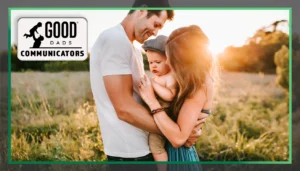Betty Clendening was a force to be reckoned with and our son was experiencing the full extent of her indignation. The two of them stood in front of my desk – Mrs. Clendening with her hands on her hips, Andrew red-faced and sheepish.
“Tell your mother what you did,” she demanded.
“I didn’t mean to. I did it ‘on accident,’” he stammered. “I was trying to kick the soccer ball over the school roof and it went through a window.”
“On accident.” There’s a phrase I knew wouldn’t fly with his father. According to my Main Man, very little really happens “on accident.” Rather, while you don’t actually want something bad to occur, due to impulsivity, force of habit, or poor judgment, something you didn’t really intend, does.
I thought of our son’s long ago incident while preparing for a presentation I was making on “Living with Purpose.” It occurs to me many of us fail to live a considerable portion of our lives with intentionality or “on purpose.” Rather, much of what materializes seems to befall us “on accident.”
But does it, really?
For instance, many people complain about being “too busy.” It causes me to wonder, are our schedules slammed from stem to stern because we were thoughtful about our choices? Or did we, perhaps, fail to say “no” when we should have? Did we graciously decline without the “maybe-if-you-push-me-hard-enough-I’ll-say-yes” in our voice? Do we contain our children’s schedules, or allow others to make us feel guilty when we limit our commitments?

Richard Leider, author of The Power of Purpose, identifies three key skills for those who want to be more intentional about their lives. First, living on purpose or requires reflection on our current situation or choices. Why am I doing what I’m doing? Who am I trying to please or make happy? What am I afraid of? Whose life am I trying to live, mine or someone else’s?
Secondly, living on purpose requires courage—not the kind of courage needed for sky-diving or white water rafting. Rather, it necessitates the sort of bravery associated with being more real, vulnerable and authentic with others. It means letting others know who you really are.

Finally, living on purpose means answering questions like these: Who am I? Why am I here? What do I need or want to accomplish? When I think about living with purpose, I’m encouraged by advice from a cancer patient.
You must stop and reassess your priorities and values. You must be willing to be yourself, not what people want you to be because you think that is the only way you can get love. You can no longer be dishonest. You are now at a point where, if you truly want to live, you have to be who you are.
If we are to live this kind of life then we will have to make choices. We will need to be intentional. We will need to sort and sift through our options.
What happened to our “on accident” son? The window cost about $200 to replace—a lot of money for a 12-year-old of limited means. Fortunately, the school had a lawn measured in acres, something that allowed a young man with few resources to do a lot of thinking while walking behind a lawn mower. No doubt the experience allowed him plenty of time to reflect on his actions and plan the future with greater intentionality. He certainly never tried to kick a soccer ball over the school roof again.





